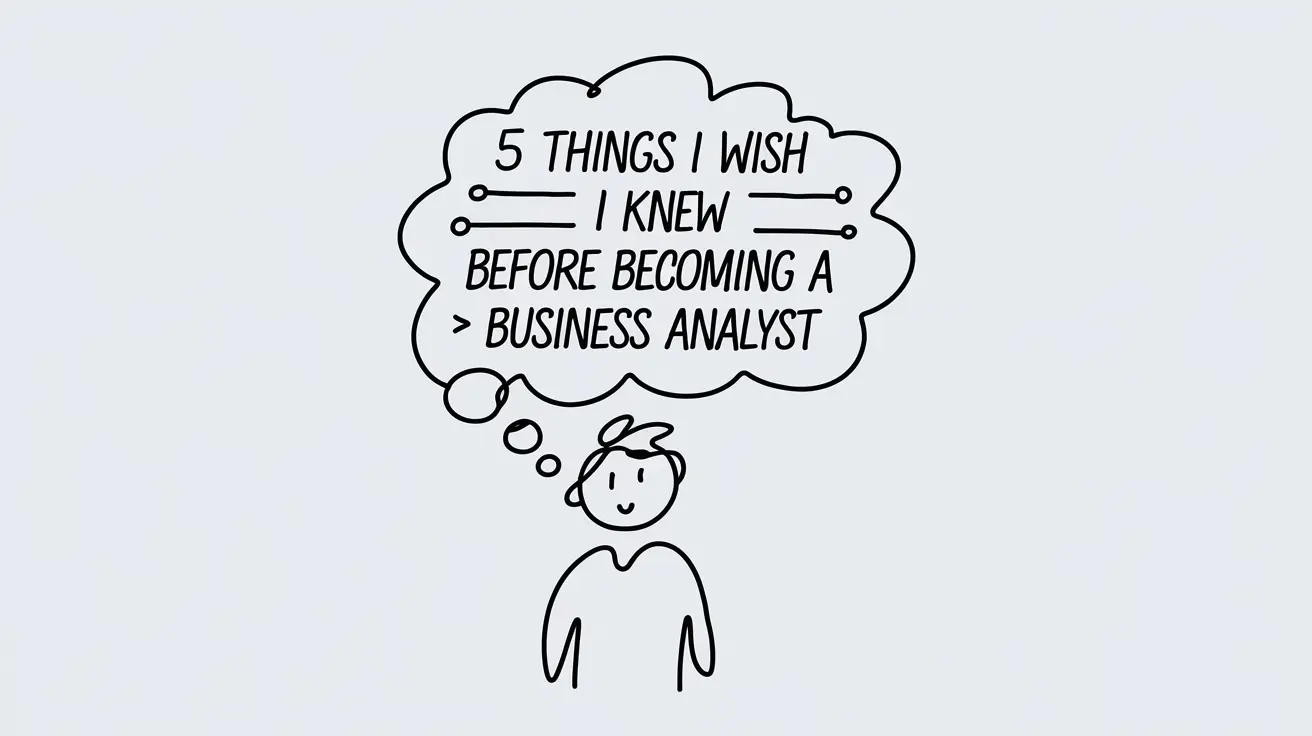As a business analyst, I’ve had my fair share of triumphs and tribulations. Looking back, there are several things I wish I knew before taking the leap into this profession. In this article, I’ll share the top 5 things I wish I knew before becoming a business analyst, in the hopes that it will help you navigate your own journey.
Understanding the Role of a Business Analyst
Before becoming a business analyst, I thought I knew what the role entailed. I assumed it was all about analyzing data, creating reports, and making recommendations to stakeholders. But, boy, was I wrong! A business analyst’s role is so much more than that. It’s about being a liaison between the business and IT, understanding the organization’s goals and objectives, and finding ways to improve processes and operations.
As a business analyst, you’ll be working closely with various stakeholders, including project managers, developers, and end-users. You’ll need to communicate complex technical information to non-technical stakeholders, and vice versa. You’ll also need to be able to analyze data, identify trends, and make recommendations to improve business outcomes.
The Importance of Soft Skills
One of the things I wish I knew before becoming a business analyst is the importance of soft skills. As a business analyst, you’ll be working with people from different backgrounds, cultures, and personalities. You’ll need to be able to communicate effectively, build relationships, and manage conflicts. You’ll also need to be able to facilitate meetings, workshops, and training sessions.
In addition to technical skills, such as data analysis and process modeling, soft skills like communication, collaboration, and problem-solving are essential for success as a business analyst. I wish I had developed these skills earlier in my career, as it would have made a huge difference in my ability to work effectively with stakeholders.
The Value of Business Acumen
Another thing I wish I knew before becoming a business analyst is the value of business acumen. As a business analyst, you’ll be working on projects that have a direct impact on the organization’s bottom line. You’ll need to understand the organization’s goals, objectives, and key performance indicators (KPIs). You’ll also need to be able to analyze financial data, identify areas for improvement, and make recommendations to improve business outcomes.
Having a solid understanding of business concepts, such as finance, marketing, and operations, is essential for success as a business analyst. I wish I had taken more courses in business administration or had more experience in a business setting before becoming a business analyst.
The Role of Technology in Business Analysis
Technology plays a critical role in business analysis. As a business analyst, you’ll be working with various tools and technologies, such as business intelligence software, project management tools, and collaboration platforms. You’ll need to be able to analyze data, identify trends, and make recommendations to improve business outcomes using these tools.
I wish I had more experience with technology before becoming a business analyst. It would have made it easier for me to learn new tools and technologies, and to communicate technical information to stakeholders.
The Importance of Stakeholder Management
Stakeholder management is critical to the success of any project. As a business analyst, you’ll be working with various stakeholders, including project managers, developers, and end-users. You’ll need to be able to communicate effectively, build relationships, and manage conflicts.
I wish I had developed my stakeholder management skills earlier in my career. It would have made it easier for me to work with stakeholders, manage expectations, and deliver projects on time and within budget.
The Value of Certification
Finally, I wish I had pursued certification as a business analyst earlier in my career. Certification, such as the Certified Business Analyst (CBA) or the Certified Associate in Business Analysis (CABA), demonstrates your expertise and commitment to the profession. It can also increase your earning potential and open up new career opportunities.
I wish I had invested in certification earlier in my career, as it would have given me a competitive edge in the job market.
The Power of Networking
Networking is essential for success as a business analyst. As a business analyst, you’ll be working on projects that involve various stakeholders, including project managers, developers, and end-users. You’ll need to be able to build relationships, communicate effectively, and manage conflicts.
I wish I had developed my networking skills earlier in my career. It would have made it easier for me to build relationships, find new job opportunities, and stay up-to-date with industry trends.
The Importance of Continuous Learning
Finally, I wish I had understood the importance of continuous learning earlier in my career. As a business analyst, you’ll need to stay up-to-date with industry trends, best practices, and new technologies. You’ll need to be able to analyze data, identify trends, and make recommendations to improve business outcomes.
I wish I had invested in continuous learning earlier in my career, as it would have made it easier for me to stay ahead of the curve and deliver high-quality results.
FAQ
What skills do I need to become a business analyst?
To become a business analyst, you’ll need a combination of technical and soft skills, including data analysis, process modeling, communication, collaboration, and problem-solving.
What is the average salary of a business analyst?
The average salary of a business analyst varies depending on factors such as location, industry, and level of experience. According to the Bureau of Labor Statistics, the median annual salary of a business analyst is around $85,000.
What are the benefits of certification as a business analyst?
Certification as a business analyst demonstrates your expertise and commitment to the profession. It can also increase your earning potential, open up new career opportunities, and improve your job prospects.
How do I get started as a business analyst?
To get started as a business analyst, you’ll need to develop your technical and soft skills, gain experience in a business setting, and consider pursuing certification.
What are the most important qualities of a successful business analyst?
The most important qualities of a successful business analyst include strong communication and collaboration skills, the ability to analyze data and make recommendations, and the ability to stay up-to-date with industry trends and best practices.
Conclusion
Becoming a business analyst requires a combination of technical and soft skills, business acumen, and the ability to stay up-to-date with industry trends and best practices. By understanding the role of a business analyst, developing your soft skills, and pursuing certification, you can set yourself up for success in this rewarding and challenging profession. Remember to always keep learning, stay flexible, and be open to new opportunities and challenges.













Leave a Reply